It’s been ten months since I packed my bags and flew to Jerusalem, ready to embark on what I anticipated to be a fun adventure, akin to a holiday spent volunteering in less fortunate communities. Yet, as the cliché goes, by the time I packed my bags to return home 10 weeks later, I had gained far more than I gave.
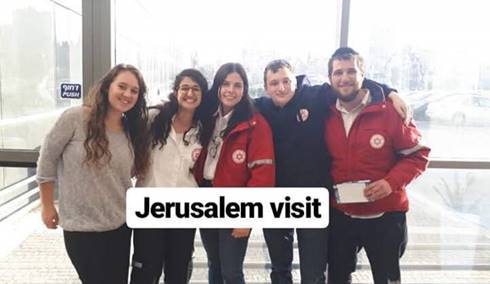
When I began the 60-hour basic first-aid course, I had just completed my first year of medical school at Monash Uni a mere few weeks earlier. I had learned about the heart, the muscles and the arteries, I had already acclimatised to the guts and gore of the lab, and was itching to put my new skills to good use, viewing the coursework as a mere formality in my pursuit. Thus, I had not even considered the friendships I would make over those 10 days in the hostel. My course included individuals from about 6 different countries, yet we had all come for a similar purpose, and these shared values manifested in relationships that are still lasting, despite huge geographical and temporal difference between participants. In fact, on the day I write this I have been in touch with 3 ‘MDA friends’ as I refer to them.
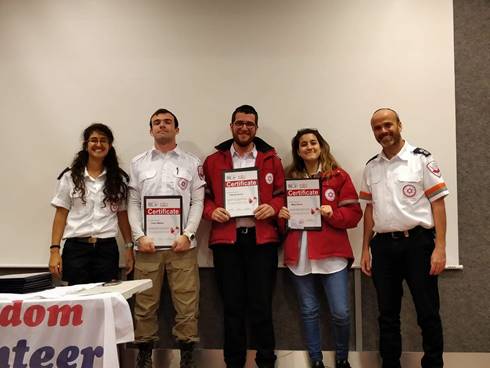
Moving on the volunteering itself. As I think back to my first few shifts, words like ‘daunting’, ‘embarrassing’ and ‘overwhelming’, come to mind. I had transplanted myself into a situation where I was the least able, in every sense of the word. Barely able to communicate and unable to do much without given express direction I felt utterly out of my depths. I distinctly remember on my second shift, no one spoke English and the driver asked me a question. Like a good chutznik, I smiled and nodded having no clue what was being conveyed, at which point she says “ani shoelet lecha!” (I’m asking you!) as she gave up on the query. But, over time, the most amazing things happened. Slowly but surely, I gained the confidence to engage as an equal member of the team, to take initiative and help without being asked. The impact was almost immediate. The Israeli volunteers and myself alike learned that I was capable of assisting and had what to offer, and I learned (much to my surprise,) that if I put in effort I actually could speak a decent Hebrew. And after 6-8 weeks volunteering, the station had morphed from the ‘daunting’ and ‘overwhelming’ environment of week one, to a second home. The Israeli volunteers, from adversaries to friends who I could spend time with on shifts. My crowning moment occurred in my final week, when a new overseas volunteer had come late to the shift and his ambulance had left without him, I marched him into the moked (dispatch) for the whole of Jerusalem, demanding the location of his ambulance and the number of his driver, in the best Israeli accent I could muster.
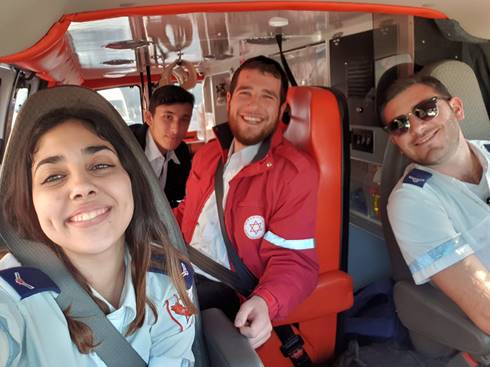
When asked about the biggest lessons, and most cherished experiences at MDA, my responses always surprises people. I rarely speak about the messy cases, or the stressful emergencies. Rather, I normally opt to speak about the patients themselves. I fondly remember transporting a patient to rehab who was born in 1940 in Jerusalem, and had never lived outside of it before. She spent the half-an-hour transport describing to me her life, watching Jerusalem being built from the inside. There was no medical emergency, yet this call moved me deeply, and quelled any doubt that I was mistaken in spending a summer volunteering for MDA. Another call I will forever remember underscores the multiculturalism of Israel, each group providing care to others. This particular call brought my team to the French Hospital, near the old city to transfer a patient to Shaare Zedek. Between the eight or so people organising the transfer there were four languages spoken, French, English, Hebrew and Arabic; everyone in the room could communicate in two of those languages. Taking double the normal time to process the patient, languages were flying around the room as everyone tried to update each other on the patient and her needs. My driver would inform me of something in Hebrew, I would repeat it in English to a nurse, who would then pass it on in French. At the time I did not appreciate the significance of all these people from different walks of life, finding any avenue of communication simply to ease the suffering of someone unconnected to all of us.
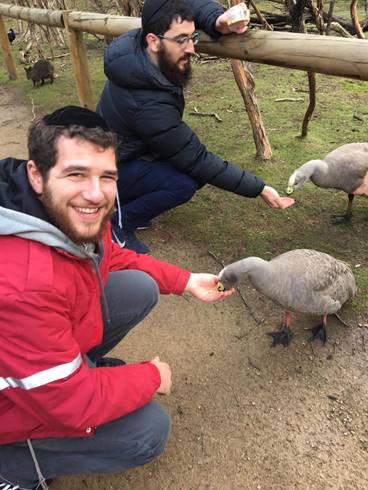 Over the two months in MDA, I pushed myself further than I knew I could. Waking up at 5:30 every morning, or alternatively staying up entire nights was no easy feat, but given the chance to spend an entire day or night alleviating the suffering of another person, no amount of exhaustion could pull me away. Nothing can compare to standing on the front lines of an emergency and having the tools at your disposal to enhance someone’s situation.
Over the two months in MDA, I pushed myself further than I knew I could. Waking up at 5:30 every morning, or alternatively staying up entire nights was no easy feat, but given the chance to spend an entire day or night alleviating the suffering of another person, no amount of exhaustion could pull me away. Nothing can compare to standing on the front lines of an emergency and having the tools at your disposal to enhance someone’s situation.
As I start to plan my next summer holidays in Israel there is no doubt in my mind that I will complete as many shifts as I can at MDA, and continue to do everything in my power to keep helping the
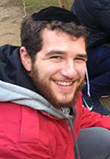 Eitan Schachna
Eitan Schachna  Eitan Schachna
Eitan Schachna